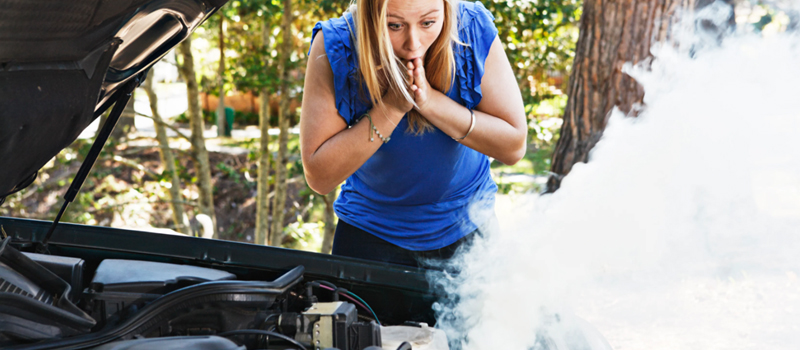
The heat in your car engine often sends a red warning light on the dashboard and is quite an alarming sight. It can be caused by natural causes, such as stop-go traffic and major hills, to something as minor as the outside temperature. In this article, Cash For Cars Adelaide outlines what you should do when you notice the red light blinking on your dashboard.
If your car starts to overheat, it is important to take action immediately. Here are some tips on what to do:
If you see your car’s temperature gauge moving into the red, or if you experience any of the other warning signs listed in the article, then it’s time to take action. The first thing you should do is pull over to the side of the road and turn off the engine. Then, open the hood and see if the radiator is low on fluid. If it is, then you’ll need to add more. Use a 50/50 mixture of water and coolant, and not overfill it. If your radiator is full, check your engine oil level, and if it’s low, add more until it reaches the proper level. Once you’ve done all of this, start your car and turn on the heater. This will help draw heat away from the engine. If your vehicle continues to overheat, you’ll need to call a tow truck and take it to a mechanic.
So, if you have a car with mechanical faults that you want to get rid of for cash, we are the best car buyers for your needs. We pay instant top dollars cash for cars, removing them for free. And the best part? You don’t have to fix up the car to sell it to us—no matter what condition your car, truck, SUV, 4×4, van, or ute.
Assuming your car has been well maintained and you frequently check the coolant levels, there are still several reasons why your engine may overheat. The most common reason is that your car is not getting enough airflow, and this could be due to a faulty fan or fan clutch, a blocked radiator, or even something as simple as leaves or debris stuck in front of your radiator.
Another common reason for overheating is a coolant leak. A leak can occur in the radiator, hoses, water pump, or even the engine itself. If you notice that your coolant levels are low or there is coolant on the ground beneath your car, it’s time to take it to a mechanic and have it checked out.
Once in a while, an overheating issue can be caused by something as simple as a loose belt. If a belt that powers the water pump or fan becomes loose, it can cause the entire system to malfunction. Inspect all of your belts regularly to ensure they are in tight and good condition.
If you find yourself stranded on the side of the road with an overheated engine, the best thing to do is turn off your car and wait for it to cool down completely.
If your car has been overheating lately, you can do a few things to prevent the heat buildup in your engine.
By following these tips, you can help prevent your car from overheating and damaging the engine.
If your car has an overheating problem, you should first check the temperature gauge. If the needle is red, your engine is getting too hot. You should pull over to the side of the road and turn off the engine as soon as possible. Let the car cool down for at least 30 minutes before checking the radiator.
If your engine is overheating, you can do a few things to try to fix the problem. First, check your coolant level and add more if it is low. If that doesn’t work, you can try opening the radiator cap to allow the coolant to flow more freely. You can also use a cooling system flush product to clean out any buildup in the radiator. If none of these solutions work, you may need to take your car to a mechanic to have it checked out.
Other common things that might overheat a car include the battery, engine oil, and transmission fluid. The best way to prevent your car from overheating is to get it serviced regularly.
If your car overheats, it is important to take action immediately to avoid serious damage. Here are some tips on what to do:
If your car overheats, you can do a few things to try and remedy the situation:
In conclusion, it is very important to know what to do when your car overheating. By following the tips in this article, you can keep yourself and your passengers safe if your car does overheat. If you are ever in doubt, always pull over and call a tow truck or mechanic to help you out.